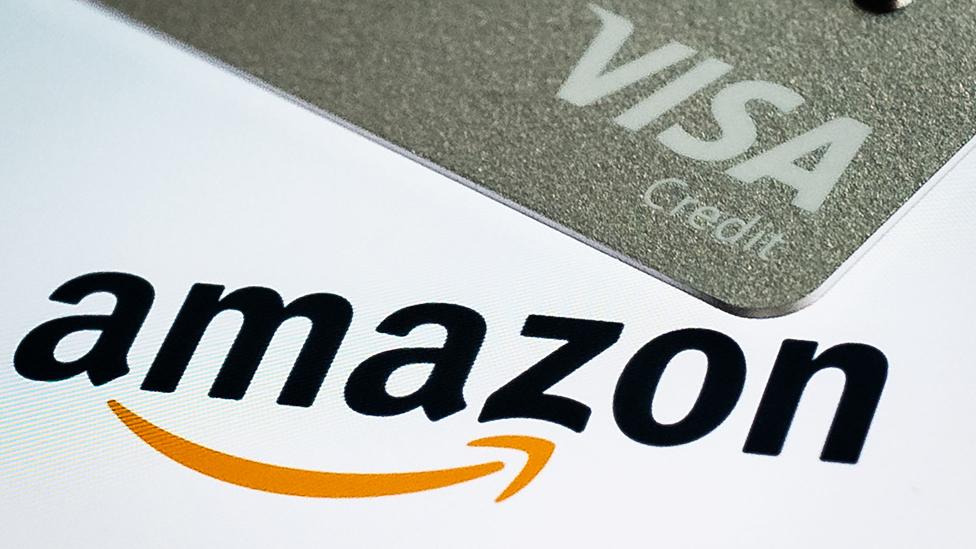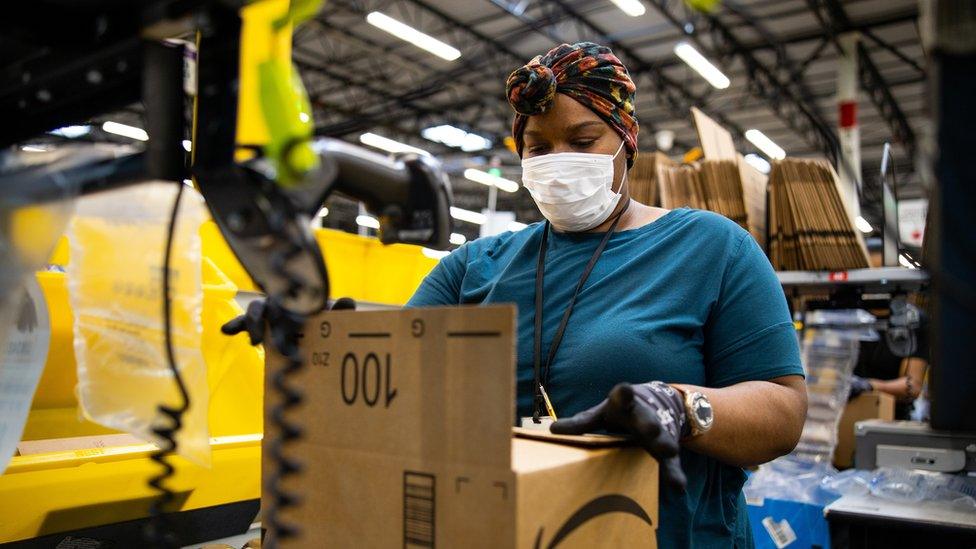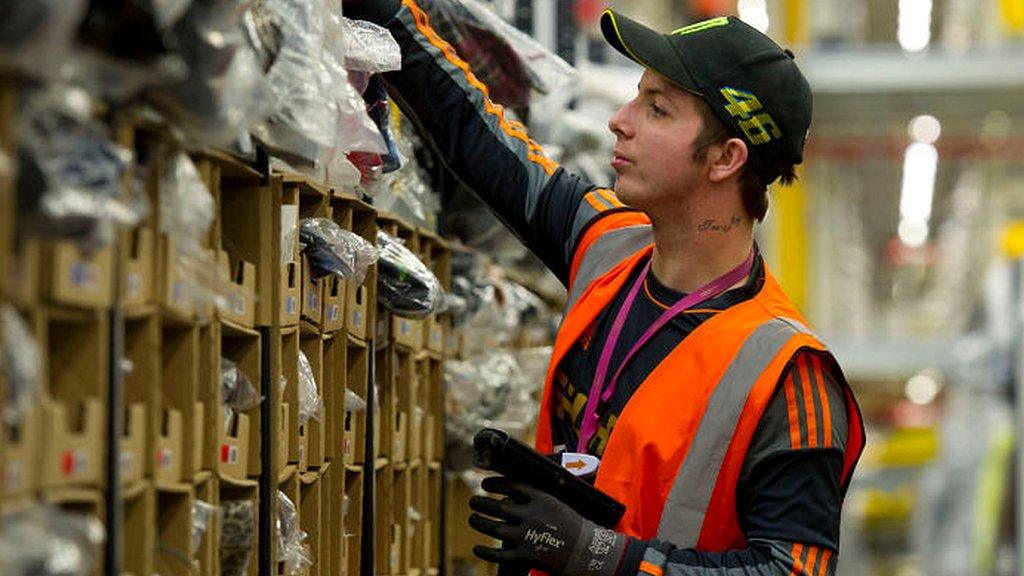Amazon to stop accepting Visa credit cards in UK
- Published

Amazon will stop accepting Visa credit cards issued in the UK from 19 January, the online retail giant has said.
It said the move was due to high credit card transaction fees but said Visa debit cards would still be accepted.
Visa said it was "very disappointed that Amazon is threatening to restrict consumer choice in the future".
Amazon said: "The cost of accepting card payments continues to be an obstacle for businesses striving to provide the best prices for customers."
The online retailer said costs should be going down over time due to advances in technology, "but instead they continue to stay high or even rise".
An Amazon spokesperson said the dispute was to do with "pretty egregious" price rises from Visa over a number of years with no additional value to its service.
Amazon is offering £20 for Prime customers to switch from using Visa to an alternative payment method, and £10 for other customers, if they have a Visa cards as their default or only payment method on their account.
Visa said in a statement it was "very disappointed that Amazon is threatening to restrict consumer choice in the future. When consumer choice is limited, nobody wins."
It said it had "a long-standing relationship with Amazon" and that it was trying to resolve the situation so customers would be able to use Visa credit cards with Amazon UK.
Amazon declined to say how much Visa charges the retailer to process transactions made on credit cards.
Visa also declined to comment though it claimed that on average it takes less than 0.1% of the value of a purchase.
'A blow'
Amazon and Visa said any changes in fees had nothing to do with Brexit.
Both Visa and its rival Mastercard have raised the so-called interchange fee on cross-border transactions between businesses in the UK and the European Union following Brexit.
The dispute between Amazon and Visa is to do with the fees the credit card company charges Amazon for its services in the UK.
Amazon is also considering dropping Visa as a partner for its US co-branded credit card.
It is in talks with payment networks, including Mastercard, American Express and Visa - as part of what it calls a standard process, the BBC has learnt.


This row between two corporate titans is now being played out in full view of their customers.
Amazon says Visa's fees are excessive, and an obstacle to low prices for consumers. Visa says its fees are competitive, has minimal effect on prices, and that nobody wins when choice is restricted.
Whether or not this row is about fees, or whether that is just a smokescreen is largely irrelevant to consumers using these services. They just know they may have to change the way they pay on Amazon.
Yet, the timing is significant. These messages to customers hit home harder when people are regularly using Amazon for Christmas shopping.
But it also means there is still time before January 19 for a compromise to be reached.

James Andrews, senior personal finance editor at comparison website Money.co.uk, said the move "will come as a blow to the millions of Britons" who use Visa credit cards, including Barclaycard and HSBC customers.
"With American Express also rejected by many UK retailers, that means people looking for rewards on their spending or trying to split the cost of shopping with a 0% purchase card on Amazon will be effectively forced to choose a Mastercard," he said.
He added that a rewards card that is offered by Amazon is "powered by Mastercard".
Mastercard's executive vice chairman Ann Cairns, said: "It's very important that customers have choice, and have the widest variety of ability to pay, whether that's through cards or from their bank accounts or cash, and remember that it is never the consumer that pays fees."
"We talk to Amazon all the time because obviously we are two big global businesses and Amazon is one of our top customers around the world."
Retail analyst Steve Dresser said in a tweet, external that Amazon could be aiming to bring Visa fees down with its move.
Allow X content?
This article contains content provided by X. We ask for your permission before anything is loaded, as they may be using cookies and other technologies. You may want to read X’s cookie policy, external and privacy policy, external before accepting. To view this content choose ‘accept and continue’.
The Federation of Small Businesses (FSB) said credit card fees "charged by the handful of card providers which dominate the cashless payment space have soared in recent years".
"Small businesses are almost always charged more for card terminals than big corporates - so when online giants start throwing down the gauntlet, you know the situation is becoming critical," said FSB national chairman Mike Cherry.
Businesses have had ongoing concerns about credit card fees from the major providers.
Last October, Visa and Mastercard were accused by the British Retail Consortium (BRC) of charging excessive fees. The trade body said they had doubled in two years.
At the time, the BRC warned that retailers would be forced to pass on costs to consumers, with credit card bills rising by up to £40.
The Payment Systems Regulator said there were "real questions about how well the cards market is working".
"We will look into how well this market is working, including the issue of increasing card fees," a spokesman for the regulator said. "If necessary we will intervene to address any issues we identify."
He said a final strategy would be published in the new year.
Visa shares ended Wednesday's New York trading day down by 4.7%.
Related topics
- Published16 November 2021

- Published29 October 2021
